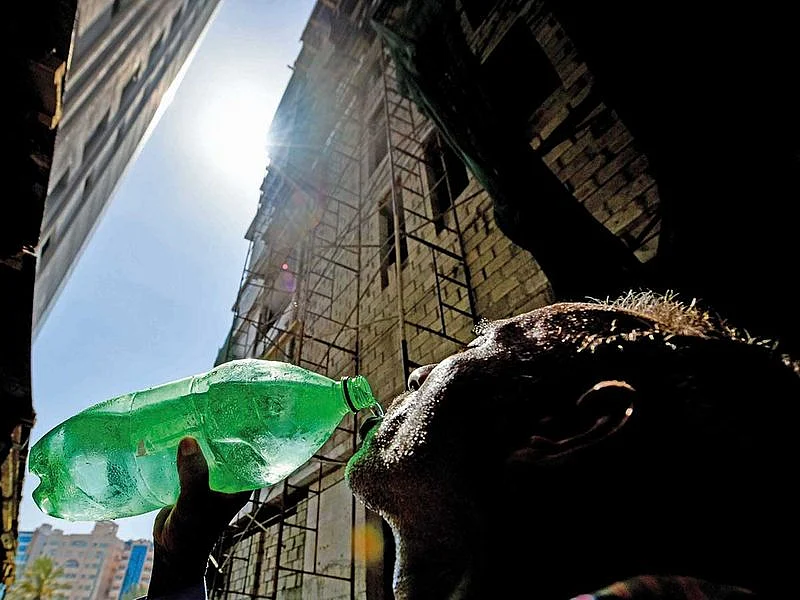UAE weather: Why humidity is skyrocketing in Dubai and Abu Dhabi as summer takes hold
The sun is blistering hot but it's the moisture in the air that makes it so uncomfortable

'Getting hot, isn't it?" It's the main thing I hear when I leave the air-con bliss of my apartment each day as we reach the end of June and the start of 'real' summer. There's plenty of apprehension as thermometers rise and the main concern isn't the blistering sunlight, it's what makes up two-thirds of our bodies - water.
H20, our life-source and best friend, turns into the enemy when the heat rises and evaporation occurs. Humidity ramps up and creates an inescapable inferno that pervades all spaces and makes those walks from the car to the office or school a sweat-fest.
With all of this in mind, we've taken a look at what causes the inhospitable weather condition and what we can do to counteract it (spoiler: go indoors).
What causes humidity?
To put it simply, water. All of that sea sloshing around us means there's a lot of evaporation always happening, especially when temperatures spike and the sun's rays are at their strongest. All of that warm water goes into the atmosphere and creates what we know as humidity. There is also vapour carried in the air from places such as India, which sees its monsoon season occurring in June that puts even more of the wet stuff into the winds that can blow our way. To make things even worse at this time of year, warm air is able to carry more moisture than cool air.
Where does high humidity happen?
The Met Office states: 'Warmer air can carry more water vapour than cooler air, if there is plenty of water available. This is because it has more energy to evaporate water into vapour, and keep it in this state. The tropics are very warm and very humid - the air in the tropics contains lots of water vapour.
'There is very little water vapour over the very cold Arctic and Antarctic. Some very warm regions are also very dry (e.g. the deserts of the Sahara), because there is very little available water to evaporate into vapour, and at about 30 degrees north or south of the equator the air descends from above and is already very dry.'
Essentially, this means humidity tends to be worse in hot places next to a coast, just like Dubai and Abu Dhabi. It not only causes the uncomfortable conditions but also fog and mist, creating the hazardous driving conditions we often see on our roads.
When does high humidity happen
Humidity is always around but it gets particularly bad when it becomes really hot - more evaporation, more moisture able to be carried in the air and the vapour warms up in the heat. June and September are often the worst months for high humidity, with September given the nickname 'Sweat-tember' by residents due to the constant perspiration the environment causes.
Why does humidity make it feel hotter?
When it is low humidity (not a lot of moisture in the air) but hot, our body can sweat to cool us down as it evaporates and takes heat away from us. However, when it is high humidity and high heat, the sweat isn't taken up by the already hot air as readily.
Our skin can't cool as fast and so we begin to overheat with no natural way of reducing our temperature. Our bodies can go into survival mode as the outside temperatures are often warmer than our healthy temperature of ... It can get dangerous quickly.
How to stay safe in high humidity
Our bodies will lose a lot of water when outside in high humidity at this time of year. Keeping hydrated is vital, along with avoiding direct sunlight and long spells outdoors. Air conditioning is definitely our friend.
Also watch our for mould as the moisture and warmth can create ideal conditions for fungus.
Sign up for the Daily Briefing
Get the latest news and updates straight to your inbox
Network Links
GN StoreDownload our app
© Al Nisr Publishing LLC 2026. All rights reserved.